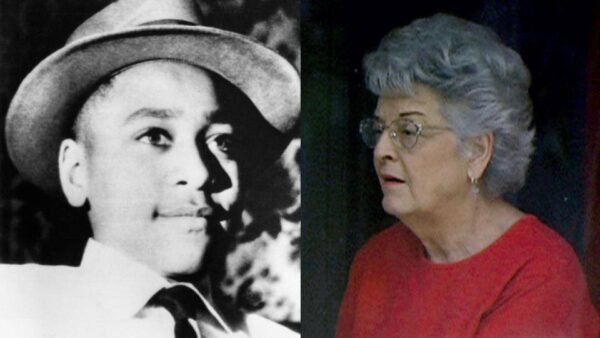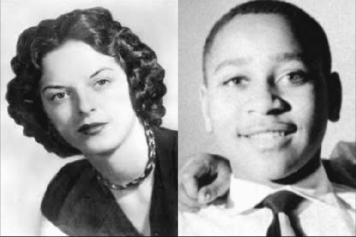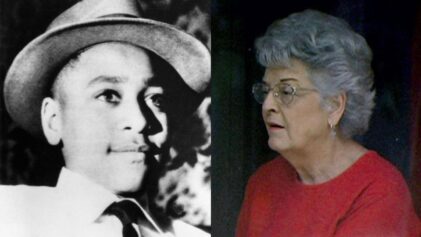The family of Emmett Till, a Black teenager who was lynched after being accused of making a pass at a white woman, has doubled down on their efforts to get a 1955 warrant served against his accuser even though the Mississippi Attorney General has announced the office will not pursue charges.

The family’s attorney, Jaribu Hill, sent a letter to Mississippi Fourth Circuit Court District Attorney, pressuring him to execute the warrant. Hill said the warrant is still active because there is no statute of limitations on kidnapping. Carolyn Bryant Donham’s unpublished memoir was also made public last week, showing she “intentionally participated in the kidnapping,” Hill said.
Michelle Williams, chief of staff for Mississippi Attorney General Lynn Fitch, told The Associated Press on Friday, “There’s no new evidence to open the case back up.”‘
The U.S. Department of Justice closed two cases without pursuing charges against Donham, the only living person involved in the incident. Donham told the court at trial that Emmett groped her during their encounter at her family store. Her husband and brother admittedly tortured and beat the 14-year-old and discarded his body in a river.
Emmett’s cousin Wheeler Parker Jr. told reporters he merely whistled at the woman. The DOJ last opened a probe into the case when she confessed to lying about the incident in a 2017 book. However, federal records show Donham denied the book’s claims when questioned by the FBI.
Hill told CNN she sent a letter, a copy of the arrest warrant and an affidavit to District Attorney Dewayne Richardson’s office. However, when Richardson was asked if he would act on the warrant last month, he referred reporters to the DOJ’s findings in the case closed in December. It was a result of the joint investigation with the Fourth Circuit Court District of Mississippi.
“Even if the government could prove that she recanted her prior state court testimony, the federal government could not prosecute her for perjury for her 1955 testimony,” Federal prosecutors said in the Dec. 6 report.
“Perjury in state court is not a federal offense. Moreover, the statute of limitations, a deadline for bringing a prosecution, expired in 1960 on any state perjury offense. Similarly, the five-year statute of limitations has expired on any claim that she lied to the FBI during the 2004 investigation.”
Hill told CNN on July 19 that they had not heard back from Richardson’s office. The attorney hopes the case is presented to the grand jury to decide whether Donham is culpable in the boy’s slaying.
“That would be justice in its truest form for us to see that,” Hill said. “Also, justice would look like people being forced to do their duties, to actually let the system itself work on behalf of this young boy who was brutally lynched and nothing was done.”
Dale Killinger, a retired FBI agent who worked on the first federal probe into the case, agrees that grand jurors should review the new findings.
“It’s still a prosecutorial decision. As an investigator, my position has always been and remains that a grand jury should be given all the facts,” Killinger said.
Deborah Watts, Emmett’s cousin, who leads the Emmett Till Legacy Foundation, said the warrant and manuscript solidify Donham’s involvement in the case. Rejection from the attorney general has only amplified the family and advocates’ push for resolve.
“Justice delayed should not be justice denied,” Watts said. “So we just ask them to look at all of the evidence.”

